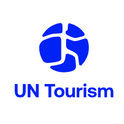Harnessing the Power of Culture and Creativity in Tourism Recovery
The shared values and close ties between tourism and culture stakeholders means both sectors can work together to ensure inclusive access to heritage, as countries around the world recover from the pandemic. In recognition of this mutually reinforcing relationship, the World Tourism Organization (UNWTO) and UNESCO have collaborated to produce a set of new guidelines focusing on the responsible restart of cultural tourism.
UNWTO invited the UN Educational, Scientific and Cultural Organization (UNESCO) to contribute to the UNWTO Inclusive Recovery Guide, Issue 2: Cultural Tourism. This is the second set of guidelines relating to the socio-cultural impacts of COVID-19 issued by UNWTO and will continue to be revised, as the situation evolves.
Make cultural tourism relevant in the recovery
The publication draws on the insights and expertise of the two UN agencies to analyse the impact of the pandemic on their respective sectors. This includes how lost revenues are severely impacting communities, heritage sites, cultural events, spaces and institutions, while also weakening destinations' competitiveness and market differentiation. The guidelines on cultural tourism also stress the need for support from policymakers to ensure the relevance of culture in the emergency and contingency planning within tourism destinations.
Cooperation for a better future
Alongside the new guidelines, UNWTO is urging the cultural tourism sector to create participatory governance structures, bringing together artists, creators, tourism and culture professionals, the private sector and local communities, for an open dialogue, data exchange and real-time solutions. The document also advocates for better urban-rural connections so as to ensure the benefits of both culture and tourism are enjoyed as widely as possible.
As a result of the pandemic, 90% of World Heritage Sites and museums introduced total or partial closures. In many cases, sites of special significance to humanity were closed to the public for the first time in decades. At the same time, the pandemic highlighted the relevance of both tourism and culture. The sudden fall in tourist arrivals has been felt across the globe, while millions of people have turned to virtual cultural experiences for comfort and inspiration.
The release of the guidelines comes within the context of the International Year of Creative Economy for Sustainable Development 2021, a UN initiative designed to recognize how different manifestations of culture, including cultural tourism, can contribute to advancing the Sustainable Development Goals (SDGs).
RELATED LINKS
- UNWTO Inclusive Recovery GuideSociocultural Impacts of COVID-19 Issue 2: Cultural Tourism
- UNWTO Inclusive Recovery Guide - Sociocultural Impacts of Covid-19, Issue I: Persons with Disabilities
- Weaving the Recovery - Indigenous Women in Tourism
- Cultural tourism & COVID19
- Guiding tourism's recovery
About UN Tourism
The World Tourism Organization (UN Tourism), a United Nations specialised agency, is the leading international organisation with the decisive and central role in promoting the development of responsible, sustainable and universally accessible tourism. It serves as a global forum for tourism policy issues and a practical source of tourism know-how. Its membership includes 166 countries, 6 territories, 2 permanent observers and over 500 Affiliate Members from the private sector.
Media enquires: [email protected]
